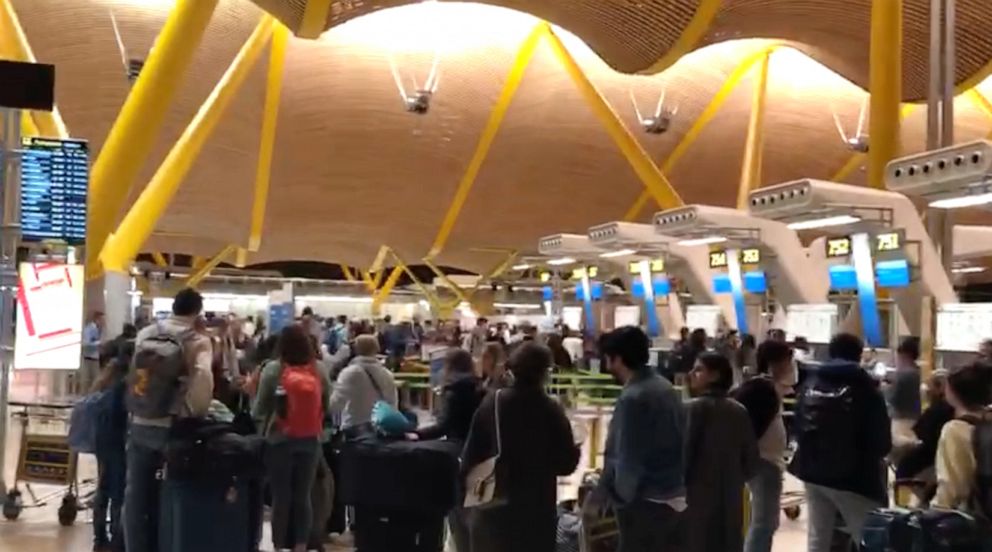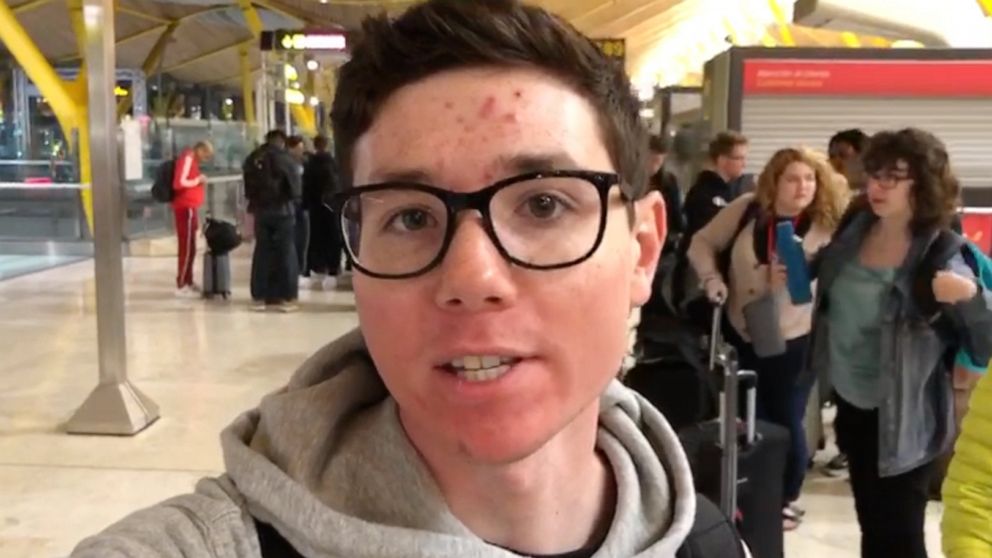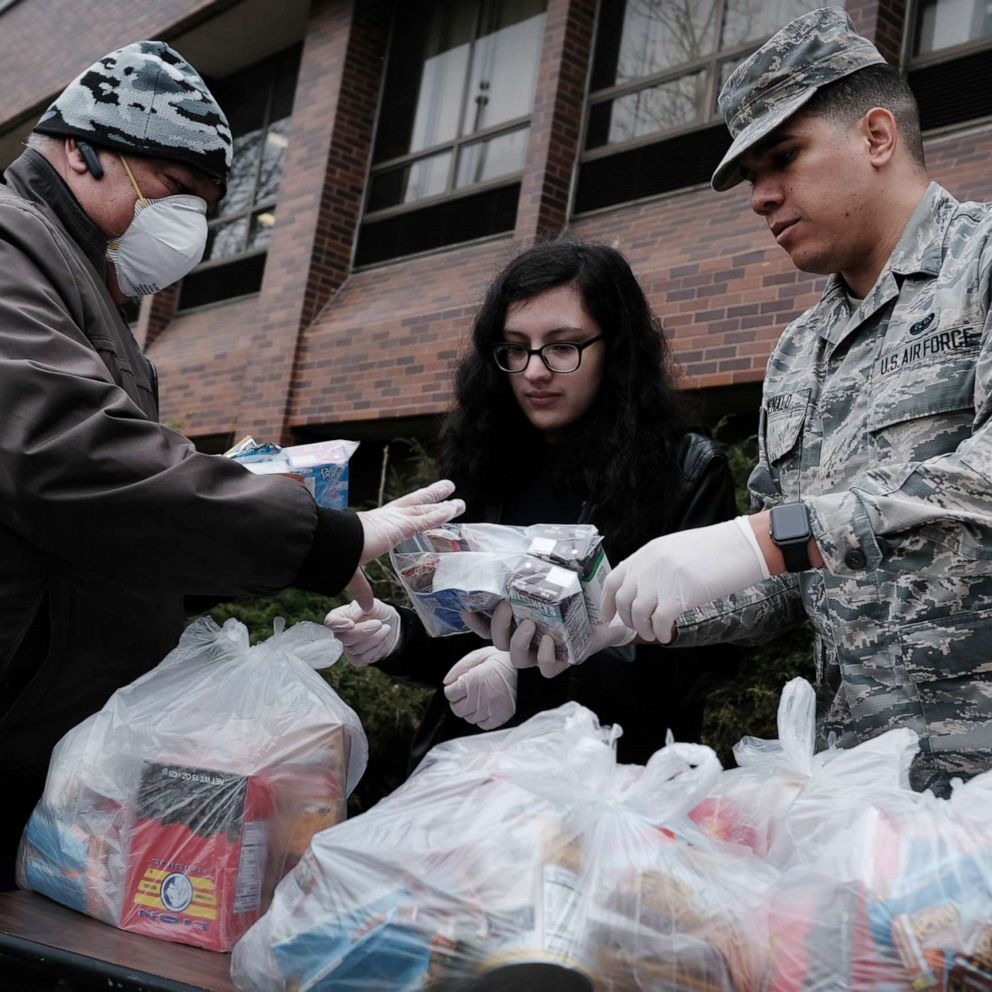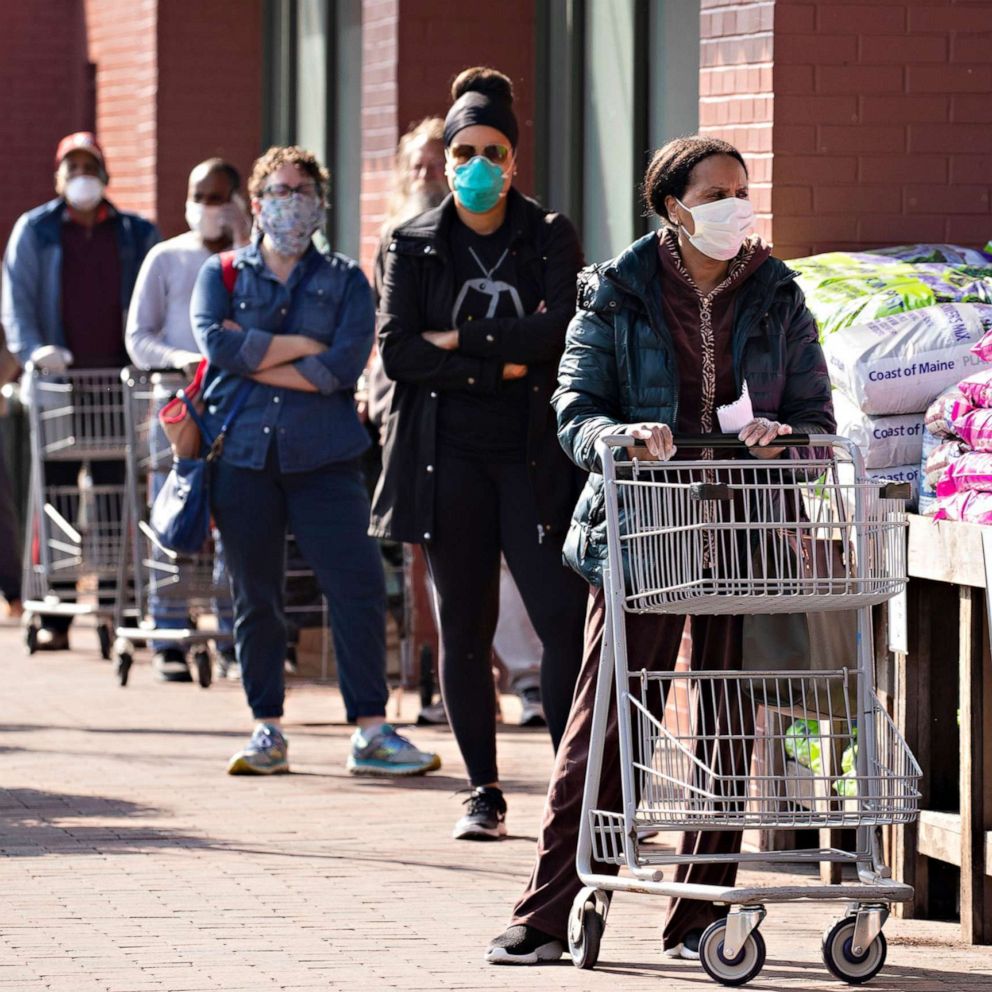American college student documents chaotic return from Madrid amid coronavirus outbreak
Spain imposted a nationwide lockdown on Saturday.
An American college student studying abroad documented his return to the U.S. from Madrid amid the coronavirus pandemic after his university suspended his overseas program.
Greg Bradbury, a student at Syracuse University, headed home Sunday morning from the Madrid-Barajas Adolfo Suárez Airport less than a week after Spain’s national government and Madrid regional authorities decided to close all schools and universities in the city.
Before Bradbury could board his American Airlines flight to John F. Kennedy International Airport, he stood in a line wrapping around the length of the airport just to check in his luggage, he told ABC News.
"The line has also not stopped growing since I got here," he observed.

The majority of the people in line were "just trying to get home," Bradbury said.
"Everyone’s worried about the situation," he continued. "A lot of people said they were cutting their vacation short, and I’m cutting my study abroad short because of the situation here in Spain."
Once Bradbury boarded the plane, flight attendants informed passengers that the flight would be full. Upon landing, passengers could be seen lining up at the cabin door to hand over their surveys and get their temperatures taken by health care screeners, he said.
On Saturday, Spain imposed a nationwide lockdown to slow the acceleration of the virus after more than 5,700 cases were recorded in the country -- the fifth-highest in the world.

Before Bradbury left, he posted a video to Facebook Saturday night showing people in Madrid cheering from their balconies to show their support for health care workers.
Other Americans living abroad described what it's like to experience a pandemic away from home.
Douglas Ritter, who moved to Italy two years ago after he retired, described the country as a "ghost town," adding that everyone is being confined to their homes other than to go shopping for food, pick up medication or occasionally walk the dog.
"People who do have some necessary work outside the house -- bus drivers, some postal employees -- are certainly allowed to go to work," he said. "But the rest of us, probably over 50 million of us, are all stuck in our homes for the next two weeks."
Most people have complied with the order, and in the event that they do need to venture outside their homes, they are required to "carry a declaration that has been downloaded from the government site that states who you are, where you live and why you are outside," Ritter said.
"People here are nervous," he said. "They're unsure about this virus but this being Italy they do adhere to the rules."
ABC News' Ahmad Hemingway and Joshua Hoyos contributed to this report.






